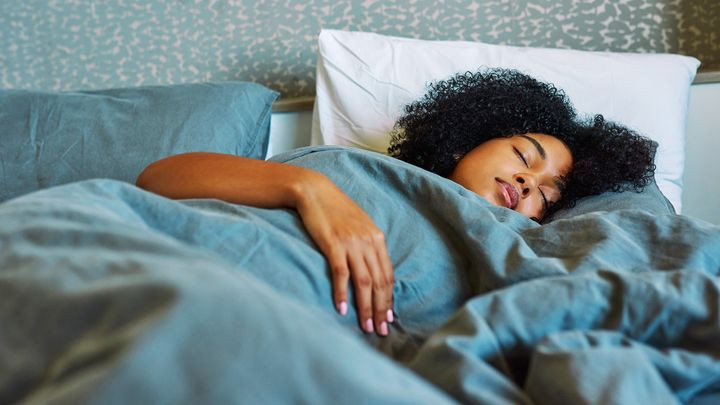The importance of a good night's sleep
Often the forgotten factor when it comes to achieving your health and lifestyle goals is the importance of a good night’s sleep. Regulating your sleep duration and quality greatly impacts several psychological and physical factors, whether this be increased neurological processing, positive cognitive performance, and emotional well-being, decreased fatigue, or a heightened physical performance level.
However, the 2018 Global Sleep Survey indicates that only 60% of UK residents meet the recommended 7-9 hours of sleep per night, with the average adult sleeping for just 6 hours and 32 minutes per night.
Nutrition and sleep
There are a number of factors that can help influence sleep hygiene, including social media exposure, sleep environment, light presence, or daytime napping. However, one area that has gained recent exposure is the use of dietary supplements for sleep. Although nutrients are likely to benefit general health more when consumed as part of food rather than supplements, some of these dietary precursors may have the ability to influence the rate of synthesis and function of the various neurotransmitters involved in your sleep-wake cycle. Take a look below to see which has received the most consumer attention thus far.
Plant Extracts
The most well-known sleep remedies are those developed from plant extracts, predominantly valerian, chamomile, and lavender. In general, there is preliminary but conflicting evidence suggesting these as possible sleep aids for sleep quality, latency, or duration in individuals, although some have suggested a significant effect in reducing symptoms of anxiety through calming effects. Although generally safe and well-tolerated, more research is therefore warranted to confirm plant extract effectiveness on sleep hygiene.
Tryptophan
The synthesis of serotonin (5-HT), a neurotransmitter involved in preventing rapid eye movement (REM) sleep, is dependent on the availability of its precursor tryptophan. Doses as low as 1g/d (equivalent to 300g turkey or 200g pumpkin seeds) taken around 45 minutes before bedtime has been shown to improve sleep latency, duration, and subjective sleep quality.
CBD
The cannabis plant has been utilised as a herbal remedy for many years and has been cited by many to provide therapeutic value to individuals, whether this be through its potential anti-oxidative, anti-inflammatory, or neuroprotective properties. Whilst THC is known for its psychotropic effects in humans, CBD is a non-intoxicating constituent of the cannabis plant. Interestingly, hemp products that contain both CBD and THC (albeit it must be < 1mg), can be legally sold in the UK.
At present, most studies looking into the effects of cannabinoids in sleep have focused on the effects of purified THC, meaning research into CBD and sleep is still in its infancy and requires further research. Nevertheless, despite early studies into CBD use showing that moderate intake could increase total sleep time and decrease sleep arousal, recent studies have yet to yield similar results in both healthy individuals and those with various sleeping disorders. Results have indicated that CBD supplementation has led to no significant differences in self-reported sleep scores, as well as no significant effect when measuring an individual’s sleep-wake cycle.
Magnesium and Zinc
Although minimal studies are available, zinc and magnesium supplementation has led to improvements in sleep quality and onset latency scores for certain individuals. Side effects, however, may include strange or lucid dreams. Although dosages for sleep have yet to be determined, ensuring you meet the recommended daily allowance should be prioritised. Foods high in zinc and magnesium include nuts, seeds, spinach, shellfish, legumes, and red meat.
The bottom line...
When considering supplement use to help an individual's sleep, you should first always undergo a cost-benefit analysis, incorporating the need, risk, effectiveness, safety, and reliability of those in consideration. Taking into account the information above, you should hopefully be able to filter out unnecessary supplements and ensure a good night's sleep through both a food-first approach, as well as other environmental factors. At P3RFORM, we take a holistic individual approach to help work out what methods may suit you, helping your lifestyle become as enjoyable as possible - one step at a time.
